

THE USD VISTA
On Tuesday, the election swept the nation as citizens flocked to the polls to make their mark on the country’s political landscape. The showdown between Vice President Kamala Harris and former President Donald Trump captivated people across the globe as the fate of the highest office in the nation was determined. As of midnight on Nov. 5, the USD Vista’s production date, the election remained neck and neck as vote counts continued to be finalized. On and before Election Day, many USD students voted in a presidential election for the first time.
USD first-year and Texas native Sienna Skinner cast a ballot in the presidential election for the first time via a mail-in ballot.
“It was a little nerve wracking to get my ballot because there was not a lot of communication in terms of when I submitted it and when I arrived in California,” Skinner shared. “So that part was not what I expected, I kind of thought it was gonna be a lot faster … Well, I did my part, I tried and I hadn’t gotten my ballot yet. Then I got it and I filled
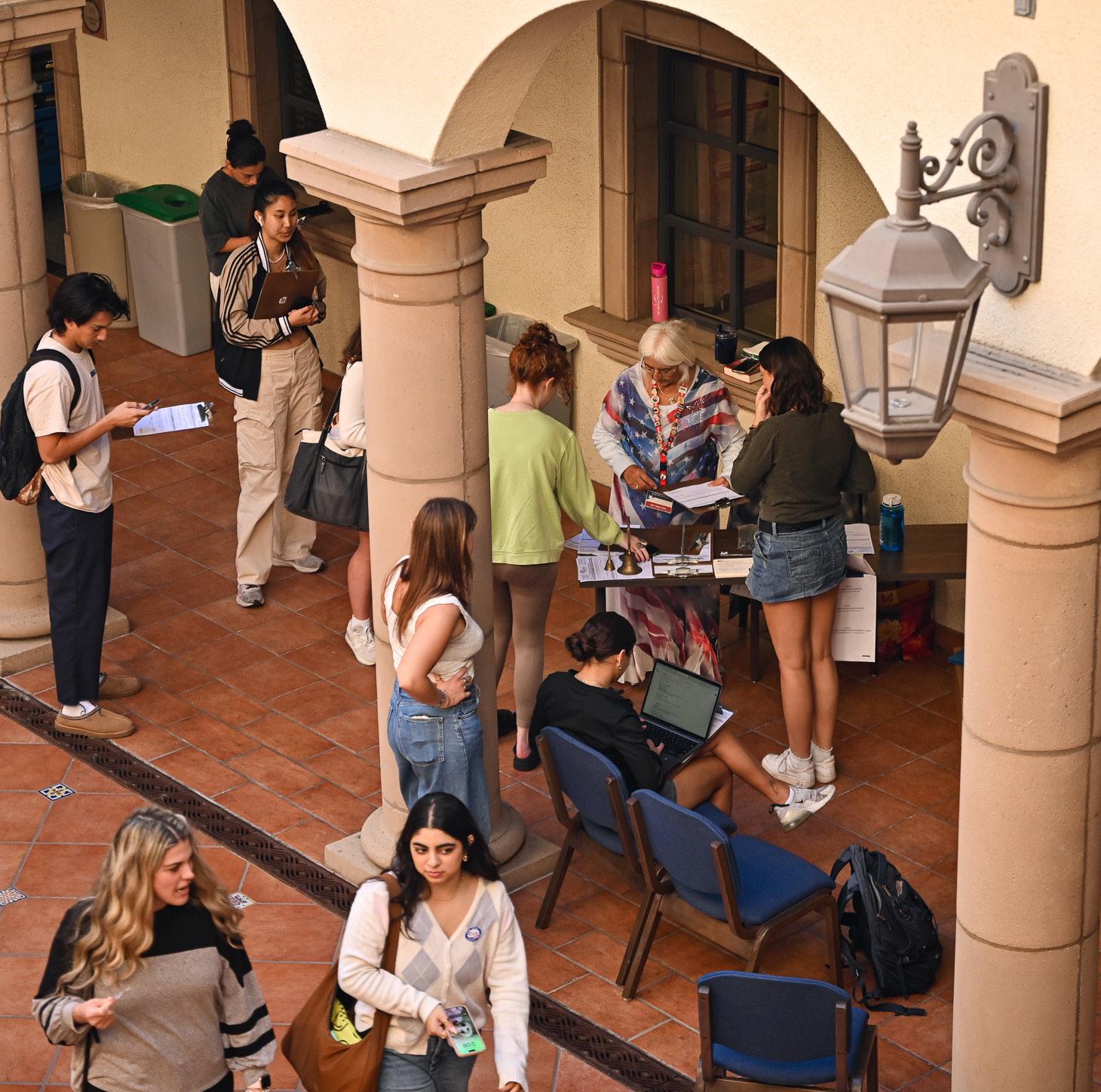
it out, and it was great. I made sure to do my research with a lot of my state positions as well.”
Not only did USD students vote, but so did the presidential candidates. Both candidates offered some final remarks before the votes started coming in.
Trump cast his vote in Palm Beach, Florida near his home at Mar-a-Lago. While at the polling center, a reporter asked Trump a few questions regarding abortion, which he refused to answer. Yet, the former president remained confident in his campaign and party.
“It looks like Republicans have shown up in full force,” Trump said. “Regrets, you always have regrets. I can’t think of any to be honest … I ran a great campaign and it was maybe the best of the three … On the assumption I win, I don’t know if something else happens. I don’t know what’s going to happen in terms of declaring victory … I certainly don’t want any violence, but I certainly don’t have to tell these are great people. These are people who believe in no violence.”
Harris voted through a mail-in ballot in the state of California, so she was not publicly seen at a polling center.
This last Saturday, Nov. 2, audience members heard the magical and rich melodies of the USD Wind Ensemble in collaboration with hip-hop and classical artist, BLKBOK. He is a neo-classical artist who has been influential in carving the path toward a new approach to musical expression. With two tools — the piano and his fingers — he intertwines rap and hip-hop beats with the elegant sounds of classical pieces. Having performed with wellknown artists such as Rihanna and John Mayer, he has become an esteemed piano player and composer. for the first time.
After countless hours of preparation, wind, brass and percussion students came together to perform at the Conrad Prebys concert hall in La Jolla.
Jeff Malecki, USD professor, music department chair and lead director, shared
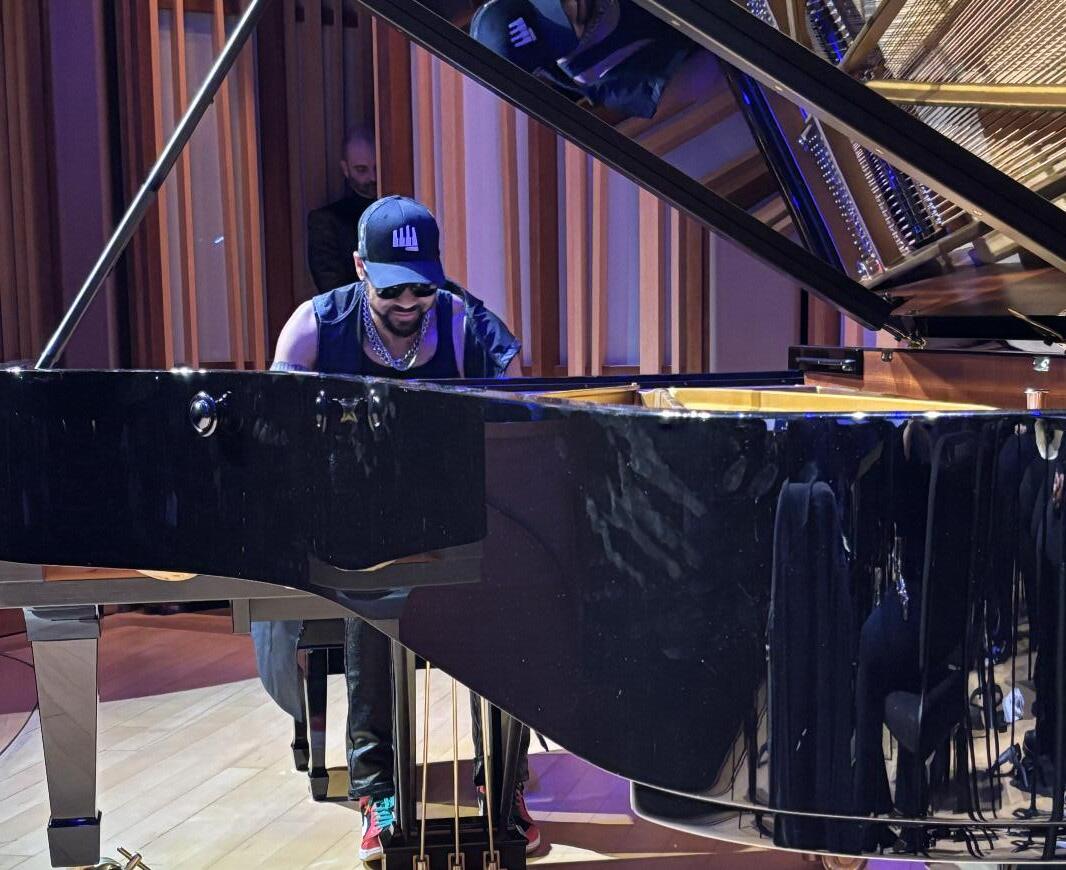


EMMA PIRHALA NEWS EDITOR
BLKBOK performs his neo-classical tunes with the USD Wind Ensemble.
Jackie Marquez/The USD Vista
Students and San Diego residents waiting to vote at the Degheri Alumni Center.
Photo courtesy of Emma-Kate Squires
Voters anxiously await results of presidential race Students flock to the polls for Election Day
From Election Day, Page 1
During Election Day, Harris spent time at a Democratic National Committee (DNC) call center to thank her volunteers. The night before the election at her rally in Allentown, she enticed her supporters to vote.
“We all know that our power includes, yes, this vote in this election but building community and coalitions and reminding folks the vast majority of us have so much more in common than what separates us,” Harris stated. “And we are all in this together … And from the very start of our campaign, this has not been about a fight that is against something. This is about a fight that is for something …This is about a future with freedom and opportunity and dignity for all Americans.”
As votes are tallied across the country, tensions rise amongst citizens awaiting the results. In today’s highly politicized environment,
some USD students fear the results of this crucial election.
USD junior JD Mouri voted for the first time in a presidential election and expressed his concern for violence following the election.
“I think there will probably be violence,” Mouri said. “
Hopefully not, but it is a very politically charged environment, especially this round of the election.”
Following the 2020 election, Trump contested President Joe Biden’s win through a series of legal actions. On Jan. 6, 2021, the day in which Congress officially tallies the electoral votes, insurrectionists supporting Trump stormed the Capitol building to protest Biden’s win. Throughout the election cycle, Trump has been adamant about voter fraud. At a rally last weekend, Trump voiced his concerns about the Democratic Party allegedly rigging the election.
“[The Democrats] are fighting so hard to steal this damn thing ... Look at what’s going on in your state, every day they’re talking about extending hours; whoever heard of this stuff,” Trump said at the rally in Lititz, PA. “It’s a damn shame, and I’m the only one that talks about it because everyone’s afraid to damn talk about it, and then they accuse you of being a conspiracy theorist. … The ones that should be locked up are the ones that cheat on these horrible elections that we go through in our country.”
The GOP, or Republican Party, has spearheaded more than 130 pre-election lawsuits to defend election integrity ahead of the election. However, some of these lawsuits have already been concluded with a Republican loss. In the Pennsylvania Supreme Court, the GOP lost a case which would have ended a practice allowing voters to correct defects on mail-in ballots. The approach also recruited
poll observers across the country to ensure transparency in the voting process.
Similarly, the Harris-Walz campaign also launched lawsuits, namely against Erie County, PA, which failed to send out their mailin ballots in a timely manner. An unnamed Harris-Walz campaign official reported to Reuters that their team has preemptively prepared legal pleadings, in anticipation of legal fights to certify the election. At a press conference on the Sunday prior to the election, Harris assured her supporters that the voting process is in fact safe and intact.
“I would ask, in particular people who have not yet voted, to not fall for [Trump’s] tactics, which I think includes suggesting to people that if they vote, their vote won’t matter — suggesting to people that somehow the integrity of our voting system is not intact, so they don’t vote,” Harris stated.
“We have and support free and fair elections in our country,
we did in 2020. He lost and the systems that are in place for this election in 2024 have integrity. They are good systems and the vote of the people will determine the outcome of this election and everyone must know that their vote is their power to determine the outcome of the election.”
Although there is still uncertainty around the results of the election, candidates and their respective parties work to protect the integrity of voting results as votes are certified. This process has been known to take as long as a month. Last election cycle, President Joe Biden was declared to have won the election four days after Election Day. However, with changes in voting procedures and increases in early voting, a winner could be predicted sooner rather than later. Yet, no matter when the results are announced, uncertainty regarding the transfer of power and the future of the country plague the minds of many.
On-campus invasions of privacy worry students
EMMA PIRHALA NEWS EDITOR
Last month, the USD Department of Public Safety (DPS) issued a safety alert to students and faculty, reporting two incidents of invasions of privacy. As of The USD Vista’s production date, Nov. 5, DPS has not released any information regarding the apprehension of the suspect.
The first incident occurred on the morning of Oct. 14 when a female student reported that an unknown individual allegedly took a photograph of her while in the women’s restroom on the second floor of the Copley Library. Because the reporter did not provide a description of the suspect, the USD community was not initially alerted of this incident. A separate report was filed on Oct. 23 by another female student after an unknown person allegedly photographed her in a women’s restroom in the Learning Commons.
The second report provided a detailed description of the suspect, which led to DPS connecting the two incidents through security camera footage and issuing a safety alert. The
Inside the investigation of the incidents
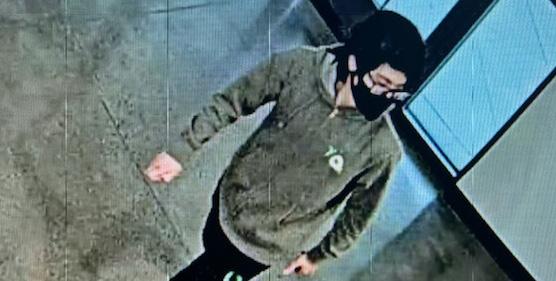
alert was sent to the campus community six hours after the second event was reported. The email described the suspect, included photos and advised those with any information to reach out to DPS or the San Diego Police Department (SDPD), which DPS is collaborating with to apprehend the perpetrator.
“The suspect is described as an Asian male adult,
The USD Vista
wearing prescription glasses, an olive-green hoodie, black sweatpants, and black tennis shoes,” the safety alert stated.
In a statement to The USD Vista, USD Assistant Vice President for Public Safety Chief James Miyashiro explained the situation and the measures taken to investigate these incidents.
“DPS and SDPD are actively investigating the incidents to
identify and apprehend the suspect,” Miyashiro stated.
“This includes reviewing security camera footage and collecting any available evidence … There has been an increase in patrols around campus bathrooms and other vulnerable areas to deter potential offenders and ensure student safety.”
Despite the measures by DPS, USD students remain
concerned about the crimes on campus. USD sophomore Paloma Valencia explained her worries regarding the recent events.
“As someone who works in the Learning Commons, I think it’s really scary,” Valencia shared. The fact that [incidents] like these are happening on a college campus, even though efforts are being made to stop them, doesn’t make me feel very safe.”
Although DPS has yet to confirm or deny if the suspect has been apprehended, Miyashiro recommended safety tips for students to protect themselves from suspicious activity. Miyashiro urged students to stay vigilant and aware of their surroundings, even when they believe they are in private areas such as restrooms, and to report suspicious activity. Any suspicious activity should be reported to DPS immediately via the MyUSD app’s safety button, emergency call boxes or the Department’s phone number at 619-260-7777. Affected students may access other on-campus resources such as the Counseling Center and University Ministry, which provide confidential counseling services free of cost.
Quinn Hallinan - Advertising Manager
Gina Lew - Student Media Advisor
Marie Minnick - Operations Advisor
A DPS safety alert sent on Oct. 23, provided a photo of the suspect and urged students to contact DPS with any information. Photo courtesy of USD Department of Public Safety
Campuses divided over new protest law SB 1287 sparks debate around free speech and safety
EMMA PIRHALA NEWS EDITOR
Last year’s escalation of tension in the Middle East brought conflict to college campuses across the country. Notable student-led protests, such as those at Columbia University, the University of Southern California and the University of California Berkeley, stirred up controversy — causing a national divide over the right to protest on campus. In light of those events, California recently signed a bill into law, requiring public universities to adopt procedures that regulate protests.
Known legally as SB 1287, the law sets four new regulations for the California State University (CSU) and University of California (UC) systems. These include adopting policies that prohibit violence and harassment into codes of conduct, requiring regulations establishing mandatory training for students about protests and speech, banning student conduct which impacts another student’s ability to engage in free speech and obligating all students to acknowledge the codes of conduct.
The USD Vista reached out to the University’s Media Relations team for comment on the campus policies regarding protests. In response, the press team directed The USD Vista to the University’s policy on assembly, listed on the USD website. However, USD’s assembly policies have not been updated since 2010. In the time since the regulations were last updated, many national and international events have been the subjects of major protests.
USD’s current policy prohibits illegal activity and property
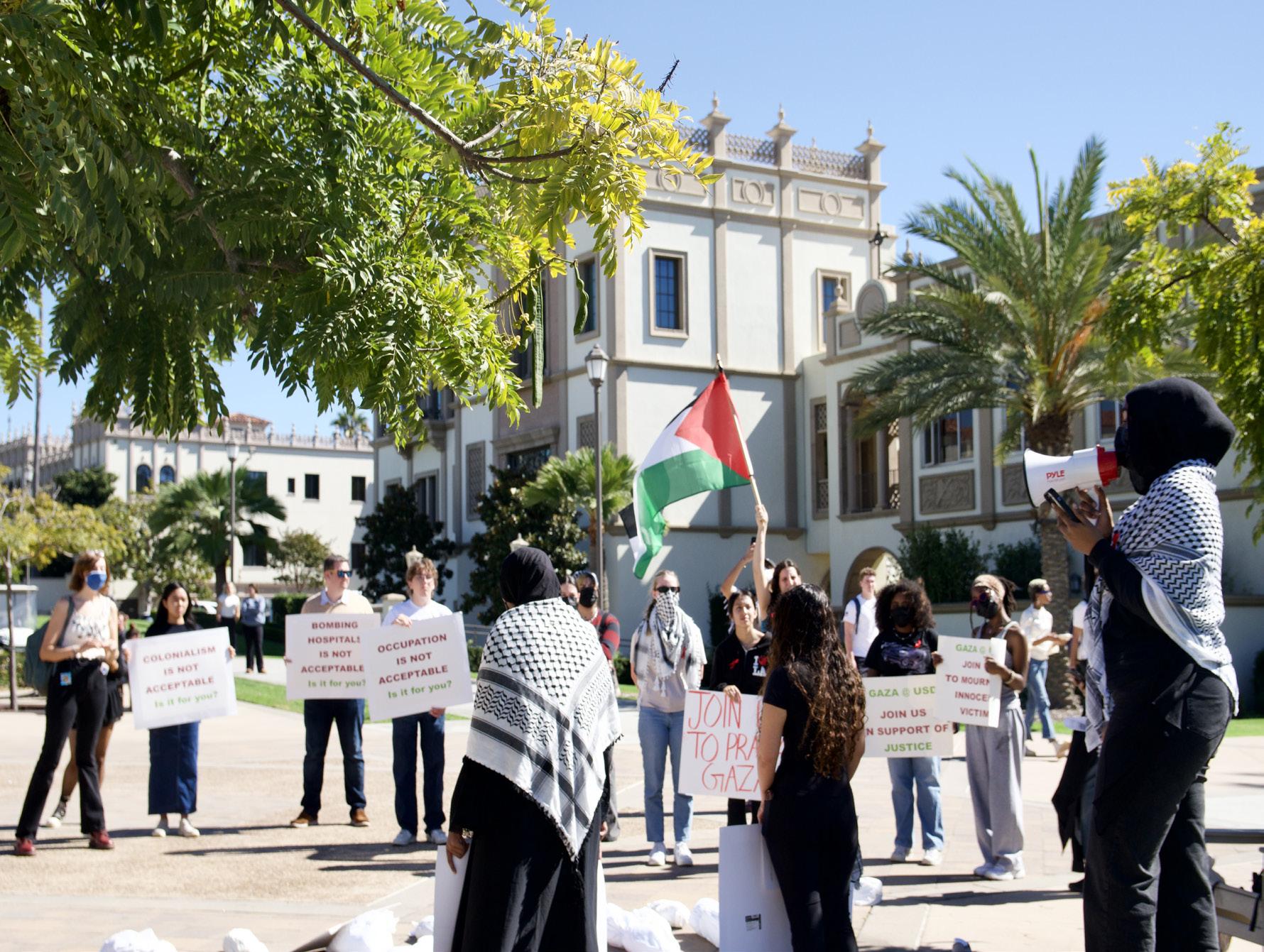
destruction, any actions which would endanger the safety or wellbeing of students and any conduct that obstructs participation of others in an event. If an assembly were to violate this policy, all participants must terminate their protest or USD’s Department of Public Safety (DPS) or the San Diego Police Department (SDPD) will intervene. The policy further states that the Vice President for Student Affairs or DPS determines whether or not an assembly violates the rules and the appropriate consequences.
Author of the law, California State Senator Steven Glazer (D-District 7), cited campus protests regarding conflict in the Middle East as his reasoning behind his bill at a Senate Committee
Hearing on Apr. 10, 2024.
“As an example [of violent protests], two students at UC Berkeley just a month or so ago were forced to seek medical attention after an event featuring an Israeli speaker was boycotted … Students were spat on, called Nazis and dirty Jews,” Glazer said. “Meanwhile, campus security was clearly overwhelmed and unprepared to protect these Jewish students from this obvious anti-semitism. Our colleges have a responsibility to promote free speech while preventing discrimination and harassment. This bill aligns with that responsibility by requiring campuses to institute policies that explicitly prohibit violence, harassment, intimidation, and discrimination, including
interference with free speech and or support for genocide.”
The motivations of SB 1287 caused uproar from pro-Israel organizations. Hillel of San Diego, an organization that directly serves USD through the Jewish Student Union (JSU), shared their support for SB 1287. USD senior and JSU President Jed Edelstein expanded on why the student organization supports SB 1287.
“Myself and the members of Hillel at USD support California Assembly Bill 1287 because we are committed to protecting the safe and inclusive environment that has been cultivated at our university,” Edelstein explained. “It’s important for our Jewish voice to be heard and not forgotten as an integral part of the community at USD. This
Halloween crossword answers
Down
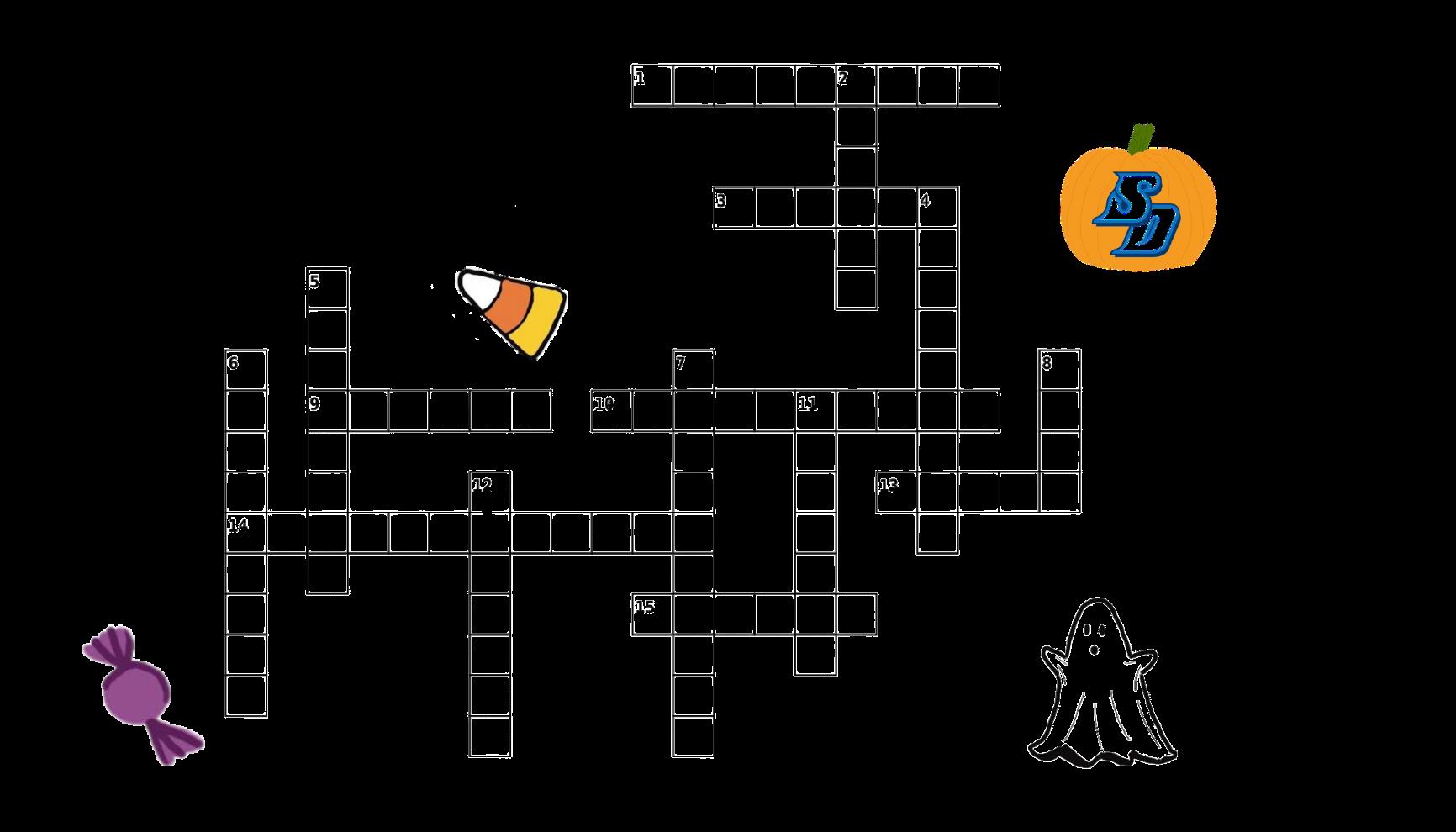
bill aims to strengthen our ability to conduct peaceful and meaningful social awareness activities, while also equipping the school with the necessary resources to effectively address behaviors that threaten our students’ well-being.”
In contrast, students supporting Palestine hold differing perspectives regarding the new law. The Palestine Solidarity Committee (PSC) is an on-campus organization for those wishing to show their support for Palestinian people affected by the conflict in the Middle East. PSC commented on their stance about SB 1287 in a statement to The USD Vista.
“The Palestine Solidarity Committee at USD fears that SB 1287 will usher in harmful repression of student’s free speech and academic freedom,” the organization stated. “Although SB 1287 is directed at public universities, it sets a dangerous precedent for limiting students’ first amendment rights across all California campuses. Students have historically been at the forefront of anti-war movements, from ending the Vietnam War to ending South African apartheid and now ending the genocide in Palestine. SB 1287 can limit student’s First Amendment rights on campuses across California.”
As violence in the Middle East continues to escalate, student organizations remain devoted to their causes. However, questions regarding the future of freedom of speech and assembly on college campuses persist as new legislation is introduced. Although the bill does not impact the University directly, questions still remain as the law affects other campuses.
2. This San Diego home is regarded as “America’s most haunted house.”
4. This tri-colored, triangular treat was named Halloween’s most contentious candy.
5. The most frequently googled Halloween costume in San Diego, according to Google Frightgeist
6. Flowers often put on Dia de los Muertos ofrendas
7. In this Halloween classic, chaos ensues after a virgin lights a black flame candle
8. O-Lantern’s first name
11. It’s believed that Halloween originated from this ancient Celtic festival
12. This festive fruit isn’t always orange. Sometimes, it’s white, yellow, red, blue or green.
Across
1. Celebration taking place on Oct. 31
3. Bulbous herb that’s said to ward off vampires
9. Celebration also starting on Oct. 31
10. A witch’s ride
13. _____ or treat
14. Who you gonna call?
15. Undead brain-eater
The Palestine Solidarity Committee at USD protested on the Paseo de Colachis on Oct. 22. Shannen Swars/The USD Vista
OPINION
Vote yes on compulsory voting
How America can fix its broken turnout
ALEX KUETER
ASST. OPINION EDITOR
The United States is a representative democracy, formed through citizens voting for officials to represent them in the courts, senates and other elected positions. These elected officials make decisions on behalf of the people in the area they represent, which is why it is so important to vote. There are many different types of elections, including presidential, midterm and off-season elections. With 2024 being a presidential year, the electoral process has garnered increased attention. However, with a history of low voter turnout, the U.S.’s election may not attract as many voters as people think.
Elections are not just something to watch on the news, but a vital part of democracy to engage in. Despite the importance of elections, people do not show up to the polls in significant numbers. According to the Pew Research Center, presidential elections typically draw about a 50% voter turnout, with the 2020 election being the highest in recorded U.S. history at 62.8%. These are incredibly low numbers, and they show how almost half of the nation disregards the incredible ability to vote. Because of this, I believe that the U.S. should implement a compulsory vote which requires all eligible voters to vote either in person or by mail on election day.
People need to recognize that voting is a privilege. In some countries like Saudi Arabia, India and more, women and ethnic minorities like Muslims, face large social pressure not to vote. Until 1920, women in the United States couldn’t cast a ballot. Some U.S. citizens are still ineligible to vote.
People such as felons or those currently incarcerated in some states are not allowed to or need special approval to vote. Many legal immigrants or international students and workers who are subject to our laws and systems also have no voice to challenge them or enact change through voting. Because some people in the U.S. are unable to vote, you should acknowledge your privilege and vote when you have the ability to. Exercising your right to vote is an incredibly important power that too many disregard.
Voting is such an important aspect of democracy that some countries, like Bolivia and Australia, actually fine or penalize the citizens who don’t show up on polling day if they don’t have an approved reason. I think this method could be incredibly effective in the United States because, while online campaigns and voter registration efforts have been successful at registering voters, not enough people turn up at the polls from them. Creating a voting requirement here in the U.S., with some exceptions, would not only ensure more people participating in democracy, but it may also motivate political leaders to do what is best for citizens.
In Australia, where voting is compulsory, politicians have more rapid turnover rates, according to The Australian Election Study. This voting requirement prompts politicians to cater to voters’ needs — lest they be ejected. If politicians in the U.S., also faced such pressures, some officials might potentially work harder to solve issues since it would be easier to vote them out. Since many local elections have depressingly low turnout rates, it is often the same people being re-elected every year, which could be decreasing
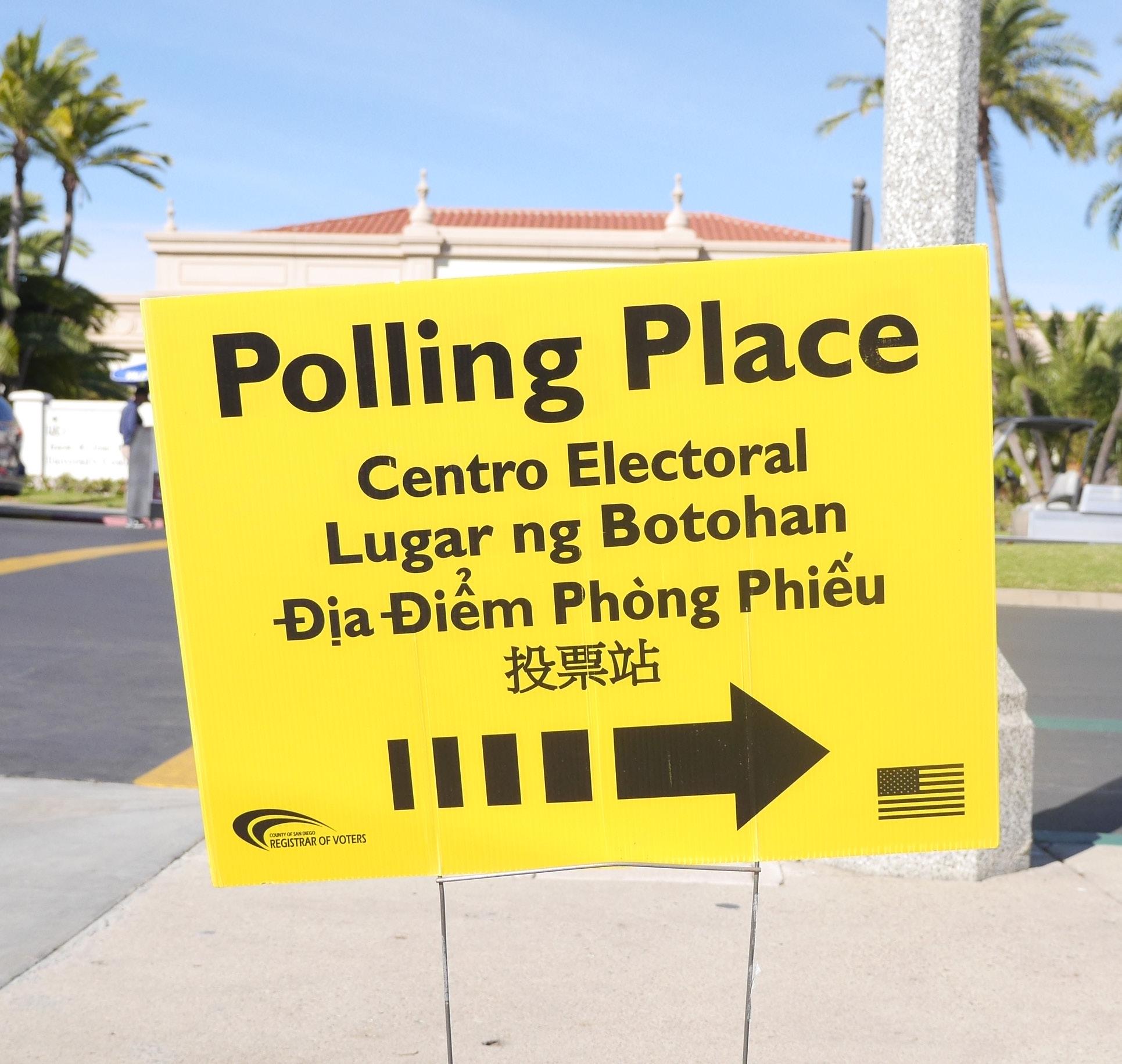
their motivation for change or meaningful effort because they know they’ll be re-elected soon.
Presidential elections aren’t the only elections that face low voter turnout rates. Local and state elections are often overlooked. In San Diego at the 2022 general election, only 44% of registered voters proceed to vote. This is reflected across all states, where large federal elections draw a big crowd but local events are almost always under 50% in turnouts.
This trend is concerning due to the fact that many policies affecting our everyday lives are
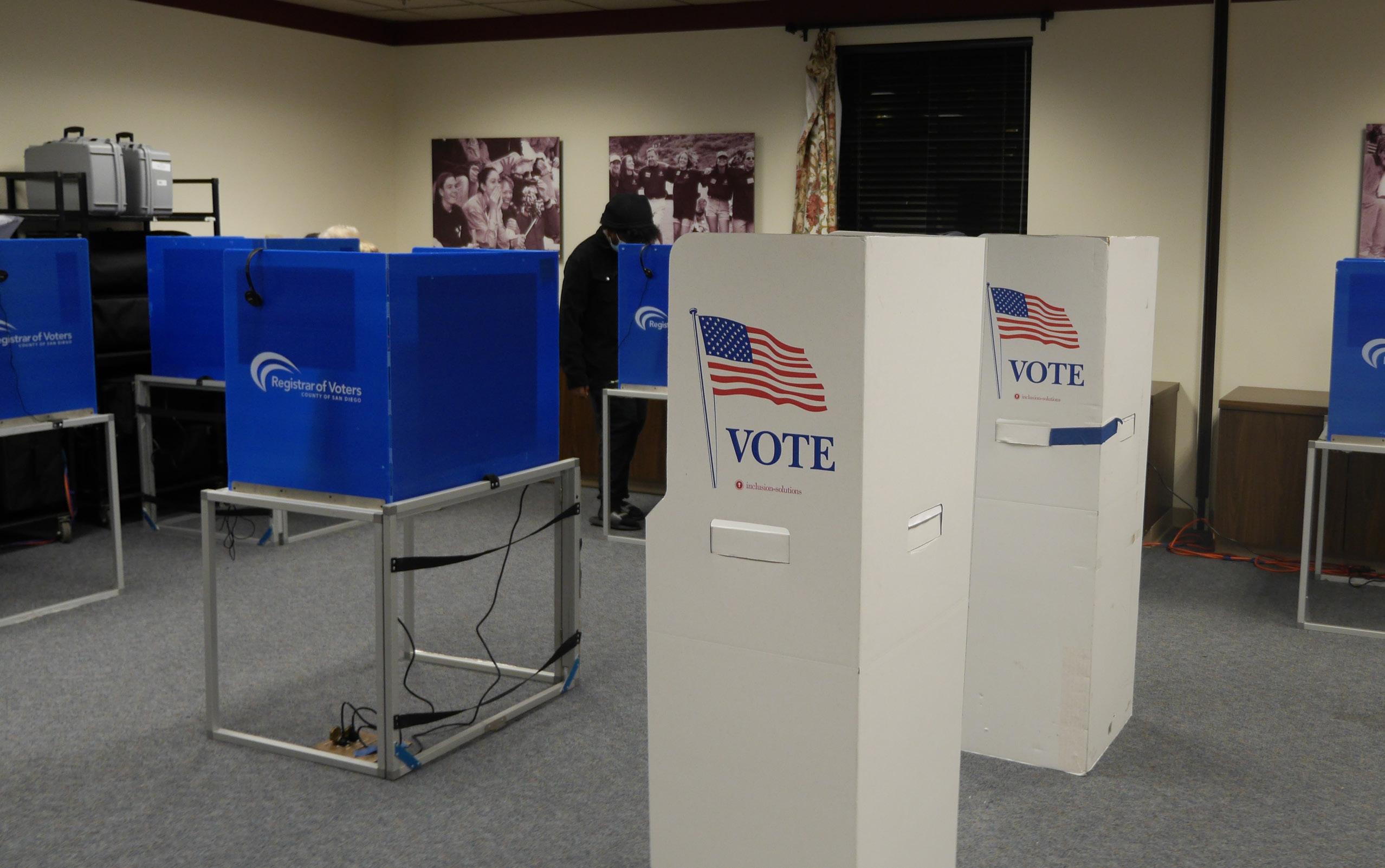
created at the state or local level. Requiring people to vote could help encourage people to research their local issues and actually see changes reflected. Some people become defeatist at the thought of voting in presidential elections because most things stay the same or it doesn’t feel like the candidates are very different. This could be because they aren’t voting in the right elections for their issues. Many issues that Americans argue about, such as taxes, reproductive rights, roads, homelessness and more are localized issues that the president doesn’t affect. These issues, especially abortion, are completely dependent on the state officials’ policy.
While requiring people to vote has many benefits, there are some potential downsides. It can be argued that requiring people to vote would be removing their democratic right to object or could create a host of accessibility issues. While citizens of the United States are granted a right to vote, that right allows them to not vote as well, to refuse to cast a ballot for either candidate because they don’t condone or agree with either candidate. However, I think this logic is incredibly flawed. If one refuses to vote, it’s not as if no one will be elected and we will start over. Someone will always need to represent the country.
Alternatively, accessibility issues are very real. While all
states have some form of a “mailin vote” that citizens can use if they cannot make it to polling stations, obtaining these ballots is no small feat. Some states such as Tennessee require multiple inperson voting appearances before you can register for a mail in ballot. Furthermore, states like Georgia have reduced the number of ballot drop off boxes and shortened the timeframe for returning mailin ballots. It is true that for the U.S. to implement a compulsory vote, these issues would have to be remedied. But if these issues were fixed, compulsory voting should not become an accessibility issue for those who struggle to vote in person.
As Americans we have many civic duties and responsibilities, such as voting, jury duty and paying taxes. But voting for the people who will lead our country and change our ways of life is one of the few not required by law. Citizens are not simply able to refuse to do their taxes because they disagree with the IRS or not show up for jury duty because they don’t feel like it; it’s their responsibility to our country. Voting should be no different. Requiring people to vote in the U.S. would increase turnout dramatically, which could increase public knowledge on politics and laws that affect them, and hopefully keep politicians accountable to create a country that better represents its people.
With a polling place in the Degheri Alumni Center, students had the opportunity to vote on campus this election season.
Emma Pirhala/The USD Vista
Voting booths inside the Degheri Alumni Center polling place.
Jackie Marquez/The USD Vista
The political is personal
This election cycle revealed more than people’s political views
JULIE FROMM ASST. OPINION EDITOR
Last week, I sat at my kitchen table and filled out my absentee ballot to vote in my home state of Kansas. I was incredibly proud to fill in the bubble next to Vice President Kamala Harris’ name. I allowed myself a moment to imagine a progressive and united country led by the first female president of the United States. At the same time, I reflected on the hectic and overwhelming election cycle that was now coming to a close, and I felt deeply saddened by the people in power that have allowed us to become such a divided nation. As a young woman, this election cycle has led me to reevaluate the people I surround myself with, what they stand for and whether they have my best interest at heart. It’s easy to say that it’s “just politics,” but it’s not — this is personal. This election could determine what the rights of women, transgender Americans, LGBTQIA+ Americans and many other groups will be. As a member of one of these groups, my vote and the votes of my peers are incredibly impactful, and the values that they hold are just as impactful.
To me, former President Donald Trump represents regression toward a past that we have worked so hard to move away from. I remember where I was sitting when Roe v. Wade was overturned. At the time, as a 20-year-old woman, I felt the impacts of that decision with full
force, and I felt scared for the future state that our country was heading toward. I also remember where I was when I found out that Kansas had voted for abortion to remain legal, and I have never been more relieved and grateful.
Not only has Trump contributed to the overturning of Roe v. Wade, but he has also fueled an environment of hate.
As reported by the New York Times, speakers at Trump’s recent rally at Madison Square Garden referred to Puerto Rico as a “floating island of garbage,” compared Harris to the “Antichrist,” called Jewish people “cheap” and Palestinian people “rock-throwers.”
I wish that I could say that these statements are shocking, but they align with the rhetoric that Trump and his constituents have maintained for his entire campaign.
When Vice President Harris announced her intention to run for President, I felt a resurgence of hope that I hadn’t felt in many years. Her plans for our country felt like the light at the end of a long, dark tunnel, and a weight was lifted from my shoulders as I knew that I would be able to cast my vote for someone I could truly believe in. Once the news broke, many people that I followed on social media, and some friends of mine, did not feel the same excitement and argued in favor of Trump, saying that Harris was too weak to beat him. They would assert that certain aspects of Trump’s policies — like his plans for the economy — were
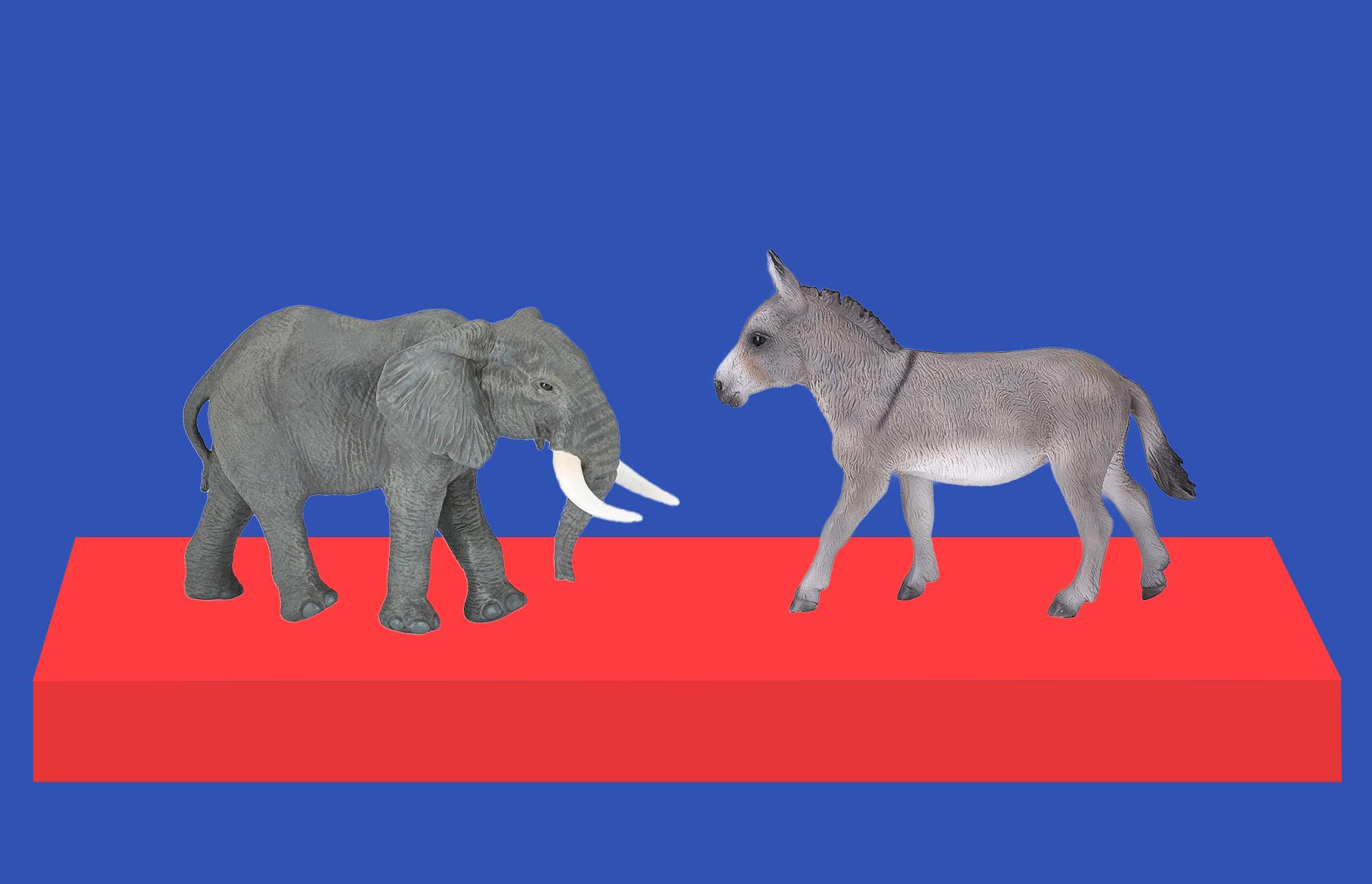
the reason they wanted to vote for him, but I refused to accept that as sufficient. In my opinion, it is far too late to hide behind Trump’s economic agenda.
As I previously mentioned, Trump and his constituents have created an environment of hatred, misogyny and racism, and for my peers to say that they were able to ignore these things in favor of his economic goals told me that they didn’t care about my rights or the rights of millions of other Americans.
As the election cycle continued, I made a personal decision to stop associating with people whose values I felt were too incompatible with mine. I unfollowed hundreds of people on social media, stopped
speaking to some friends and realized quickly that this task wasn’t as hard as I imagined it to be. Being associated with people who did not stand for the things I believe in was more difficult than breaking ties with them. As a democracy, every citizen is allowed to have their own political opinions. I would never say that other people are not entitled to their own beliefs. However, I draw the line when people’s political agendas begin to attack and threaten the rights of others.
Having been an active participant in this historic election has been transformative for how I view the world. I was incredibly grateful to exercise my right to
vote because I knew that my rights and the rights of so many people that I care about, depended on it. This election cycle forced me to ask myself difficult questions, such as what I truly believe in, what my values are and who I want to surround myself with. It is important to me to associate with people who share my core values, and who believe that as an American woman, I deserve to maintain my rights, the rights that women before me fought for so ardently. There are so many unknowns in regards to the future of our country, but I know that I will look back on this period of my life and remember the important things I learned about myself and those around me.

In recent years, the political climate has polarized the masses.
Khushi Patel/The USD Vista
opinions can drive a wedge between relationships.
Khushi Patel/The USD Vista


ARTS & FEATURE
Initiating important discussions at USD More about the Civil Discourse initiative on campus
HAILEY HOWELL FEATURE EDITOR
A new initiative on campus began this semester as part of the Toreros Together for the Common Good Program in hopes of creating a space for open dialogue before and after the election season. USD’s Civil Discourse initiative has hosted events and invited speakers to campus to encourage understanding of different viewpoints, especially with the current political polarization in the U.S. surrounding the election. The initiative is overseen by Byron Howlett, USD’s Assistant Vice President for Student Life, Nicole Whitner, USD’s Assistant Vice President and Dean of Students as well as Christopher Burden, USD’s Assistant Vice President for Student Wellness.
A group of students have also taken on the role of Civil Discourse Ambassadors. Their responsibilities include planning and running events that allow for open dialogue and increase student engagement.
USD junior Grace Anderson shared about her experience as a student ambassador and how she hopes the group makes an impact on the USD community.
“As Civil Discourse ambassadors, we have been meeting and planning since July via Zoom and then in person once the semester started, working on functional events to encourage voter turnout, civil participation and overall education on what Civil Discourse is and why it’s important to our community,” Anderson said.
The main goals of student ambassadors is to assist in creating a platform where
students are free to express their ideas and beliefs respectfully.
“We hope to set a tone on campus pre and post election of peaceful and open dialogue about the political turmoil happening daily in America and represent USD as a space where, whatever you believe, your voice is heard and respected,” Anderson said.
“We cannot create positive change without having open dialogue and creating a space on campus where students can see people coming together for the greater good of civil participation is important to our general campus community.”
The students and faculty involved in the initiative have held events such as Civil-A-Tea, an interactive workshop that was hosted in collaboration with the Torero Program Board and Dare to Dialogue. Faculty speakers such as Hugh Burkhart and Dr. Jonathan Bowman, as well as guest speaker Dr. Shirley N. Weber, California’s Secretary of State, have been invited by the initiative to discuss important issues and to try to bridge political divides.
Another Civil Discourse Ambassador, USD sophomore Bekah Sugano, shared about her favorite event that the initiative has hosted.
“My favorite event was the fireside chat we hosted with Dr. Shirley Weber, the Secretary of State in California,” Sugano said.
“She is incredibly supportive of civil discourse and has been instrumental in the political community in initiating this. Dr. Weber had so many amazing messages and pieces of advice for students wanting to engage with civil discourse.
She largely emphasized the importance of engaging with people from different sides of
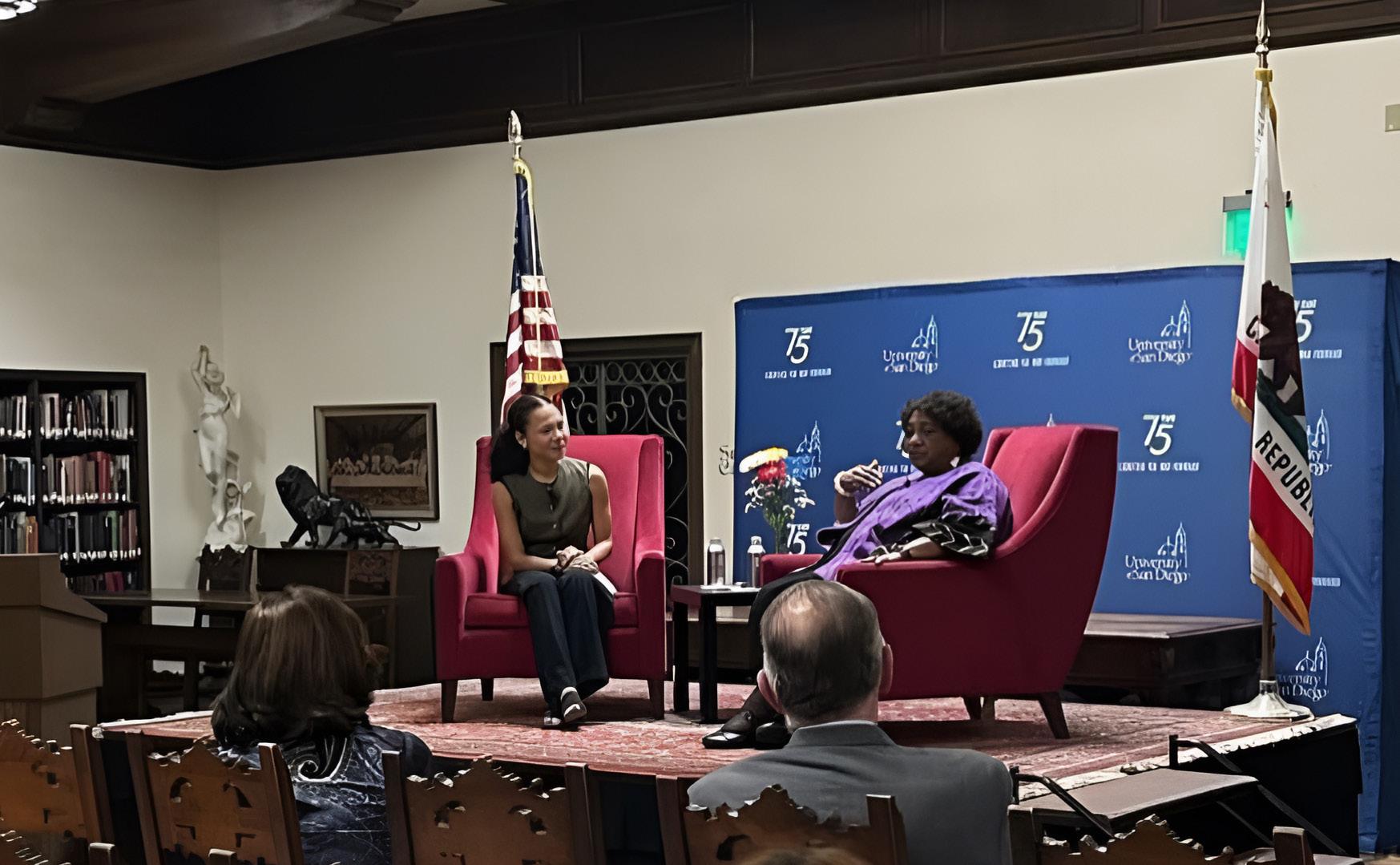
the political spectrum from you through humanizing them and getting to know them on a deeply personal level.”
Sugano also highlighted another event centered around media education.
“I also really enjoyed our Civility Cafe about media literacy,” Sugano said. “It gave many students the tools and education needed to address misinformation, disinformation and [malinformation]. Dr. Burkhart helped us discuss how the lack of media literacy contributes to unproductive political conversation and the need for proper media education in order to have respectful political conversations.”
With tension around the upcoming election, Sugano also explained why it’s important for students to initiate these discussions and be open to hearing different opinions.
“Civil Discourse is incredibly important for college students
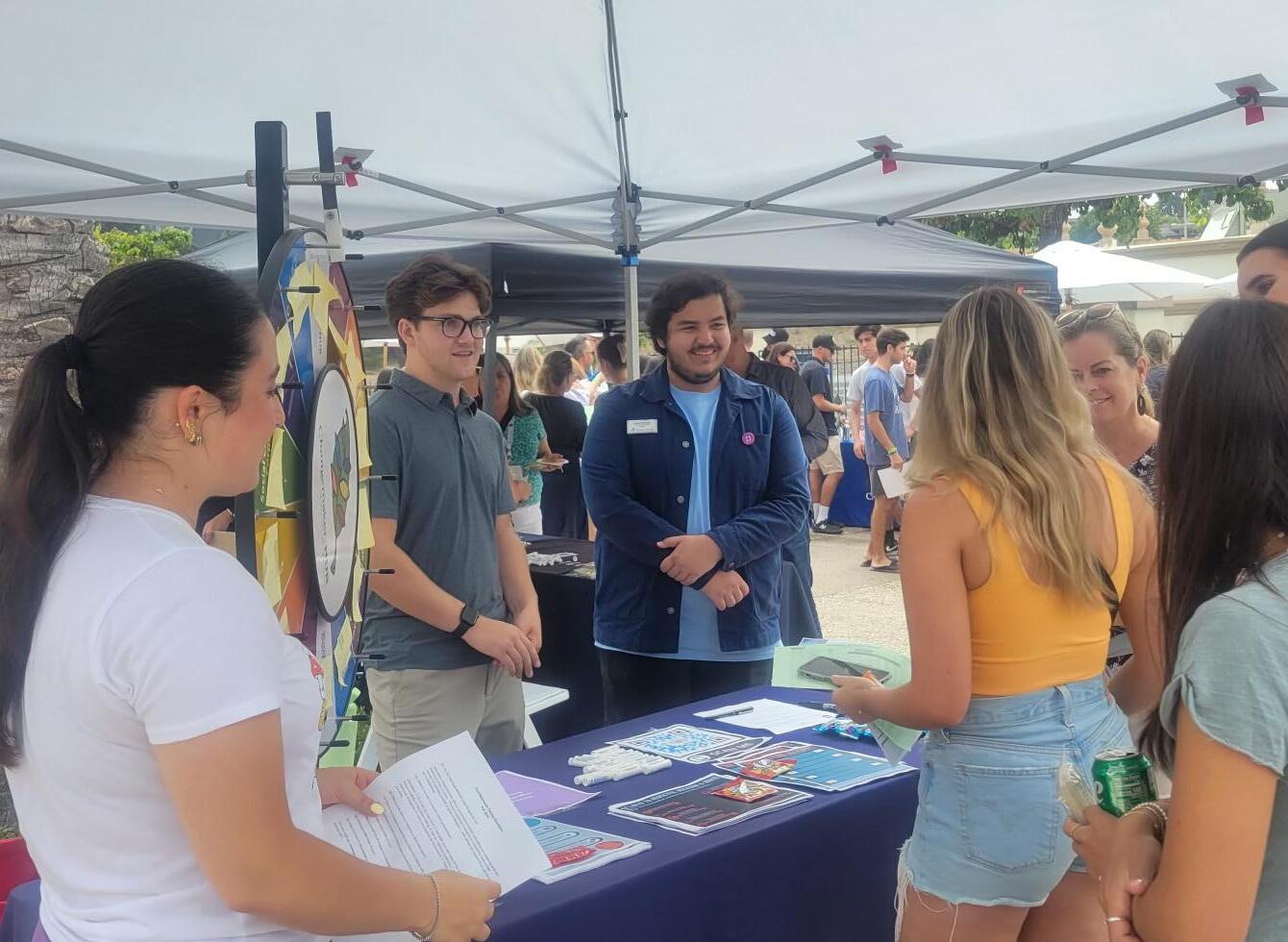
as we are a large part of the political community that holds a great deal of influence amongst our generation,” Sugano said.
“We have the ability to drive the attitudes around political discourse and dialogue. If we are able to create healthy civil discourse, it will make waves in creating peace in our political community. It is especially important for this upcoming election as we are all aware of the existing tension between political parties and the need for bridging the gap. It is many of our first times voting and entering into political society and the more educated we are on the ways to go about it the more impact we can have!”
Sugano shared that through hosting events with this initiative, their goal is to encourage more conversations centered around current issues.
“We are hoping to see an increase in political conversations on campus that are respectful and
productive,” Sugano said. “We want to bridge the gaps between political parties and establish the ability for students to disagree and have differing opinions in discussions. We are also hoping to see an increase in political engagement in general and provide students with the confidence to do so. We want students to have the resources needed to distinguish their political values, vote, and talk with others about their ideologies respectfully.” Through this initiative, USD students have more spaces to listen and hold important discussions. The next event is going to be held on Nov. 13, where faculty speaker Dr. Philip Gamaghelyan will discuss “Conflict Styles and Resolution.” Even though it’s too late to vote in this presidential election, continuing to discuss current issues and hear other perspectives is a great way to stay engaged civically.
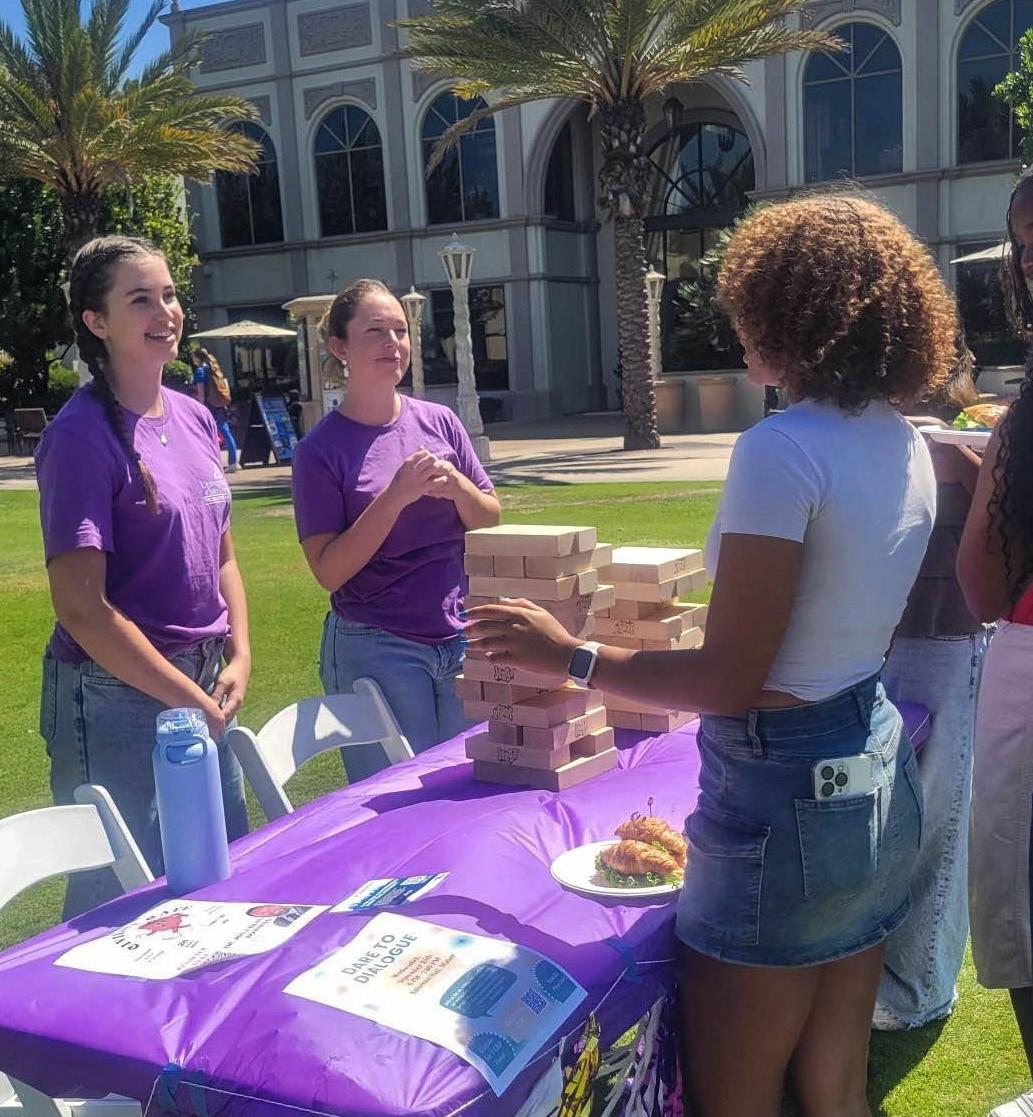
Dr. Shirley Weber, the California Secretary of State, speaking in Copley Library.
Photo courtesy of @usd.civildiscourse/Instagram
USD students engaging in a Civil Discourse tabling event.
Photo courtesy of Karly Shanahan
Students visiting different tables at the Civil-A-Tea event. Photo courtesy of Karly Shanahan
Music and advocacy become one
USD Wind Ensemble and BLKBOK join forces to create change
From Wind Ensemble, Page 1 insight into BLKBOK’s style.
“He’s writing these very colorful, classical style pieces with more of this modern relevance that I think is meant to capture this audience in a different way,” Malecki said. “My favorite is called ‘Michelle’s First Day in the White House.’ It really captures Michelle Obama entering the White House in the first term, being the first African American first lady, entering a house that was built by slaves and here she is as first lady which is such a lofty topic — how do you write a three-minute piece about that? It’s really tender and contemplative and sometimes a little bit more turbulent and it captures [that moment].”
With compositions such as this one and “George Floyd and the Struggle for Equality,” the performance echoed the messages behind BLKBOK’s work. His compositions speak to race equality and of hatred in the world by telling stories of his own struggles and those experienced historically. In an on-stage interview with Malecki during the performance, BLKBOK shared that the murder of George
Floyd took place the day after he finished his second album.
He then decided to postpone the album release and spent 21 extra days composing “George Floyd and the Struggle for Equality.”
“Everything was kind of happening in real time, and I didn’t have the time to really process the emotion,” BLKBOK said. “Or I had to process the emotions faster than I had ever done in any other piece.
So that’s why it seems a little bit more raw, like the anger is a little bit more broad.”
New to USD and the ensemble this semester is Co-
Director Dr. Long Tao Tang.
He explained the ways in which rehearsing this piece specifically reflected the message of the piece itself.
“The last movement of the four section piece is related to George Floyd and the struggle with inequality,” Tang said.
“So when we’re rehearsing it, there is this kind of complicated rhythm that is not very intuitive, and it’s very difficult for a bunch of musicians to play it at the same time, and it kind of was a struggle to play it equally, in a way that it kind of even carries a
rhetorical meaning. To me, that is powerful, because the efforts that we put into making sure that this comes out sounding good, doesn’t only have a technical function of sounding good, but [it] also has a deeper meaning.”
For some students, BLKBOK’s mode of storytelling is powerful in its own way.
Lauren Wilson, USD junior and flute player in the ensemble, shared why she thought this collaboration was important.
“I think at a time like this, music is definitely what brings people together,” Wilson said.
“I think a lot of people are more willing to learn about certain issues when it’s tied to a musical artist. [For BLKBOK, his music is] piano pieces, so you’re mostly interpreting the message through the emotions conveyed rather than words, which I think is super unique, too.”
The USD Wind Ensemble hosts around two to three concerts per semester. The ensemble includes students from a range of musical backgrounds including some from prestigious musical highschools and others who have decided to pick up an instrument again in college.
Many students appreciated the opportunity to collaborate with BLKBOK because he is such an advocate for change.
“[The students] want to be playing new music, they want to be playing music they enjoy, they want to be playing music by diverse composers, so this is a way for them to realize that in a meaningful way,” Malecki said.
On top of this, the ensemble consists of students from a wide range of disciplines. Most are not music majors, and, to some students, this makes this group of performers even more special.
“We’re not like SDSU, where we have a huge, full sound,” USD junior Lauren O’Donnell said. “We’re small but mighty, and I think we give heart. There’s only two music majors I think, maybe three, who are in the whole wind ensemble, so it’s even more special when you have majors from all over campus coming together.”
This performance was the world premiere of the BLKBOK arrangement, meaning that the songs and the sounds produced had never been heard before by an audience, making for a momentous night for spectators
who attended the show.
“There are some really special pieces that the audience sitting in the Conrad get to hear [for the first time],” Malecki said. “It’s something that no one in the history of human life has ever heard and that’s really exciting. We don’t get that very often, and I think there’s something very special and very cool about being the first ones.”
For the students who graced the stage, this was a moment they would never forget. With their instruments in hand, they got to be a part of something that not many universities can offer to their students.
“His work is really awesome,” O’Donnell said. “[He’s] up and coming, and we’re premiering [his] music. It’s something special, because we’re making a step in history for his career and I think that kind of gives you chills. I think it [was] really special and really cool.”
This night was one for USD’s history books. Students, staff and local San Diegans joined together in the concert hall to listen to the intricate sounds of these performers and the stories they had to tell.
Saturday Night Live’s 50th season
Marcello Hernandez’s influence catches Gen Z’s attention
VLADESCU CONTRIBUTOR
With the start of Season 50 of Saturday Night Live (SNL), a new wave of comedy has hit the masses and it’s making an impact on audiences. The SNL episode that aired on Sept. 28 attracted 5.3 million viewers, making it the most viewers for an SNL season premiere since 2020. People are wondering if this has to do with a new audience tuning in: Generation Z.
This generation has become known for being a “digitally-savvy generation,” and the effects of this are becoming more apparent with shows like SNL. The exponential growth has become most evident on social media platforms, such as TikTok, Instagram and other programs that have algorithms that are pushing these trends to the top.
“For me, after a show happens, my ‘For You Page’ on TikTok is full of clips and different memes that have come out of SNL, like the previous episode that had aired,” Quezada said. “Basically, I think with TikTok especially, it is so helpful in enhancing the social media aspect of SNL, especially since so many of us Gen Z-ers, we use TikTok. I think that with all of the sound bites and the memes that definitely reciprocates a lot on TikTok, and has definitely helped it grow within our generation, and other people.”
This new season has a fresh pairing of hosts and musical guests with big names coming on the show, including Ariana Grande, Billie Eilish and Chappell Roan. These celebrities have large Gen Z followings, drawing in younger audiences to SNL.
“I always watch SNL each
week to see which celebrity might be on,” USD sophomore Emily Kielty said. “I do feel that sometimes if there’s a celebrity that I don’t know that well, then I’m not as into it and might not watch it versus if it’s somebody that I do know. Then I definitely want to watch. But I also love the cast themselves, like I love Colin Jost’s news skits that he always does. I feel like the SNL cast itself is so good that they don’t even need the celebrities to be funny.”
Celebrities’ presence on SNL is a factor Gen Z viewers take into consideration when deciding whether or not to tune in, but it is clear that this isn’t the deciding factor when it comes to watching the show. Many students tune in with the intention of enjoying the comedic reputation SNL has.
“I think SNL is really funny,” USD first-year Adriana Quezada said. “I just got into it a couple years ago, so I’m not like an expert on it, but I think that it’s really funny, and honestly, since I want to be an actress, I think that you’ve really made it when you’re a host on Saturday Night Live. It’s kind of like a dream of mine to be a host for SNL one day. I think overall that the cast is really good by themselves, even if it’s just a show with the cast, I think that it would still be a really good show.”
Along with these celebrities, there are cast members such as Marcello Hernandez, Michael Longfellow and Devon Walker, all of whom have recently been promoted to the main SNL cast after first joining the sketch comedy show in 2022. One name in particular stands out from this list: Marcello Hernandez. The notable cast member has been appearing
more frequently on trending TikTok’s and other platforms. He joined the cast of Saturday Night Live in 2022, becoming the show’s first cast member from Generation Z. While he joined over two years ago, he has been rapidly garnering fame and attention among all audiences, especially relating to those of Gen Z. For many students, Hernandez was among the first names that came to mind when discussing SNL.
“I love [Hernandez],” Quezada said. “I think that he’s really funny, and I think he’s my fave, to be honest, out of them all. He’s really funny and he is Latino, and I really relate to that, as do a lot of his sketches and things he makes. I feel like he’d be a good friend. Most recently, especially with the whole ‘Domingo’ sketch, people have tuned in.”
The sketch that Quezada mentioned has been trending on social media. It features Ariana Grande and Hernandez singing an off-key take on Sabrina Carpenter’s song “Espresso,” where a group of bridesmaids recall what happened during a bachelorette party. Things escalate between the bride and Domingo. As more details are unearthed, more chaos ensues. Domingo is played by Hernandez, who shows up and crashes the wedding with the now infamous message “Direct from Domingo.” He insists that he and the bride are just friends, but proclaims that they had hooked up in the past. This sketch soared to popularity, being featured in thousands of TikToks, gaining millions of views, with viewers finding this raunchy, albeit off-pitch song, getting stuck in their heads.
“Because he’s so young and
because as Gen Z-ers we can kind of relate to him, I definitely think he’s made it more popular for us,” Kielty said. “I think Marcello has helped so much. I feel like since he’s from our generation, he’s helping bring in a lot of the younger viewers in. I just think that he’s so funny too, he kills all his skits. Honestly, he’s my favorite cast member.”
Many comedic influences, such as Hernandez’s impact with the “Domingo” sketch, have Gen Z fans focusing their attention towards the comedy scene, finding the content of SNL to be funnier and more relatable than ever.
These fresh faces have supported SNL’s comeback and have resulted in an increase in viewership, with millions more joining in for a laugh. Overall, Saturday Night Live seems to be making a comeback in the media, and many think that the show is at its peak as the comedy gears more towards its new audience’s humor. SNL remains a place where only the best of the best celebrities have a chance to engage with a more comedic side of their brand and the growing viewership among younger audiences who excitedly tune in to see them.

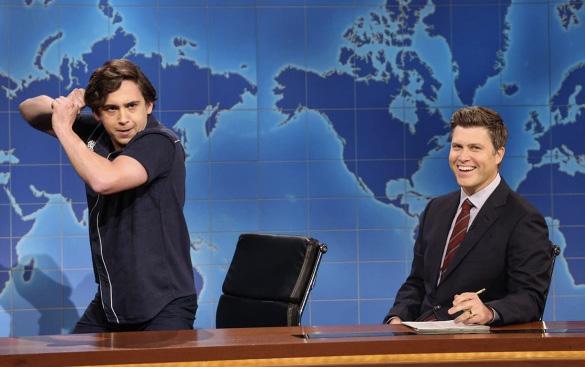
CRISTIANA
Hernandez with well-known SNL comedian Colin Jost.
Photo courtesy of @marcellohdz/Instagram
Marcello Hernandez has become the voice of Generation Z on SNL. Photo courtesy of @marcellohdz/Instagram
ARTS & CULTURE
Lights, camera, action
What it takes to bring film festivals to life in San Diego
There are several different film festivals in San Diego throughout the year. Some of these include the San Diego Latino Film Festival, the San Diego Asian Film Festival and the San Diego Italian Film Festival. These three events happen at different times every year, but they all hold a very similar objective: to connect communities across San Diego and to give exposure to the different culture that each festival aligns with.
“[The film festival] is electric,” Artistic Director of the Asian film festival, Brian Hu, said. “Not just to see films in a theater, which doesn’t happen as much these days, but also to watch films before anybody else sees it, or to know that these films might never be released in the United States. This is a rare and precious window into the creativity of artists deemed too ‘marginal’ for the mainstream, but who we in the audience know are making some of the most important and entertaining films in the world.”
The Asian festival is just around the corner. It is held at the beginning of November, and this year it will be taking place from Nov. 7 to Nov. 16 across various locations, including the San Diego Natural History Museum and Edwards Cinema in Mira Mesa. The events range from opening night, where the screening for the first movie happens, as well as screenings of shorts and films. This year the festival will celebrate its 25th anniversary, and it has come a long way since its beginning, which was closely connected to USD.
“Without USD, there would be no SDAFF [San Diego Asian Film Festival],” Hu said. “Our first edition took place at USD. Filmmakers flew in from all over the country to make USD the hub of Asian American cinema that year. None of this would have been possible without the help of Professor Leeva Chung, who was a huge
supporter in that first year, and continues to support the festival today. Beyond that, we’ve had SDAFF members teach at USD.
I was an adjunct instructor in Communication and Art History for several years. This year, Professor Victoria Fu is inviting one of the SDAFF filmmakers [Alison Nguyen] to come to campus to discuss her work.”
The presence of professors during these festivals is not uncommon. Professor Chung has been working closely with the directors of this festival since they first started and she continues to support them in different ways.
“I was part of the original group that launched this festival at USD,” Chung said. “My part of it was planning it, organizing it at USD — what room they would use, what dorms the filmmakers would use to live in during the festival, etc. Back in 1998, there were not a lot of buildings as there are today, so this was a challenge. Now I support the festival by attending, bringing my students and even raising money to help out.”
The participation of USD professors has not diminished, even after years of producing the festival. The same is true for the Italian film festival. The Italian festival took place from Oct. 1 to Oct. 16. Similar to the Asian film festival, this festival has different events but focuses mostly on films instead of shorts.
“The biggest connection between the festival and USD is me, as I’ve been the artistic director of this organization for 10 years now,” Italian USD
Professor Antonio Iannotta said.
“I’m the person responsible for the programs, the choice of the movies and the organization of the competition we have been doing for six years now.”
Professor Iannotta has been part of the Department of Languages, Cultures and Literatures since 2015. He teaches Italian film and the Italian language at University of California San Diego, San
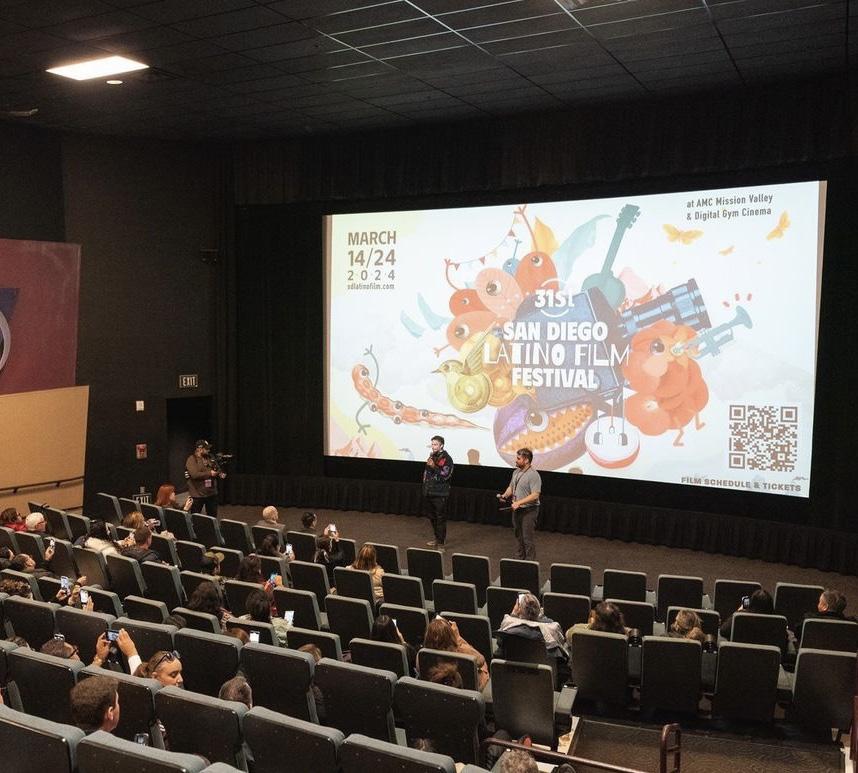
Diego State University and USD. As the Artistic Director of the Italian festival, Iannotta oversees the operations it takes to make the festival happen year after year, but one of his biggest responsibilities is selecting the films that will be presented.
“We accept everybody that is an Italian director, but also everybody else if they deal with an Italian topic or an AmericanItalian topic,” Iannotta said. “We always try to involve the students, encourage them to come or even to participate in the festival. We have even had students doing internships with the organization and working with our events.”
The participation of USD in the Italian film festival is noticeable, whether this is having students or professors as staff. In addition to this, there are also opportunities for volunteers or interns. This can come in handy as a resource for students majoring in film or the language itself.
The Latino Film Festival is still some time away, taking place from March 19 to March 23 of 2025. This festival is a nonprofit organization, established 31 years ago. It is held at the Media Arts Center in San Diego every year. The festival is known for the attendance of famous film actors such as America Ferrera, Jaime Camil and Alfonso Cuaron.
“The San Diego Latino Film Festival, now coming up on its 32nd year, is an annual celebration of Latin American cinema, music, art and cuisine,” Exhibitions Senior Manager Kristian Perez said. “A lot of the films that we present don’t always get distribution in the United States, and so it truly is a special experience for these filmmakers to get to share their work in a cinema with the San Diego community. We got to bring in Cheech Marin as a special guest this last edition. It really didn’t hit me until I saw him in the cinema, but it was such a privilege to get to hear him speak on some of his own history. I grew up watching him in Spy Kids, and I
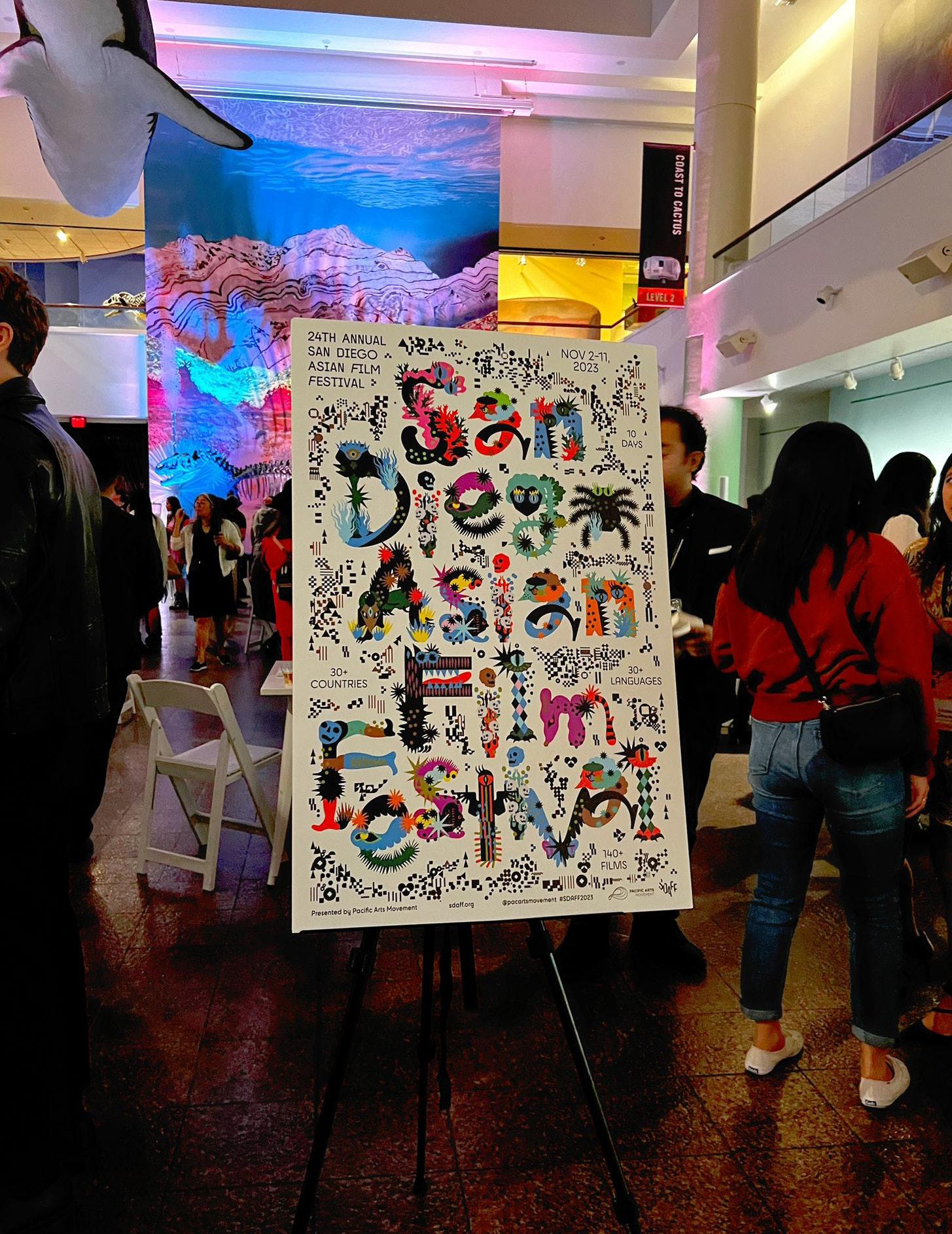
couldn’t believe that he was here.”
These types of film festivals not only allow for communities to get together and celebrate their cultures, but it also presents an opportunity for people to meet the actors they grew up watching on television. While these festivals give the audience a new viewing experience, it takes a lot of time and energy to make sure these events run smoothly and successfully.
“There are a lot of moving parts, but we have an incredible team of people who have been working as organizers of the festival for years,” Perez said.
“It’s a months long process but it starts with our annual call for entries process, which is then followed by a lot of planning & organization internally. As we get closer to the festival, which will take place March 19 - 23, 2025, we also partner with universities and local latinx art institutions and businesses
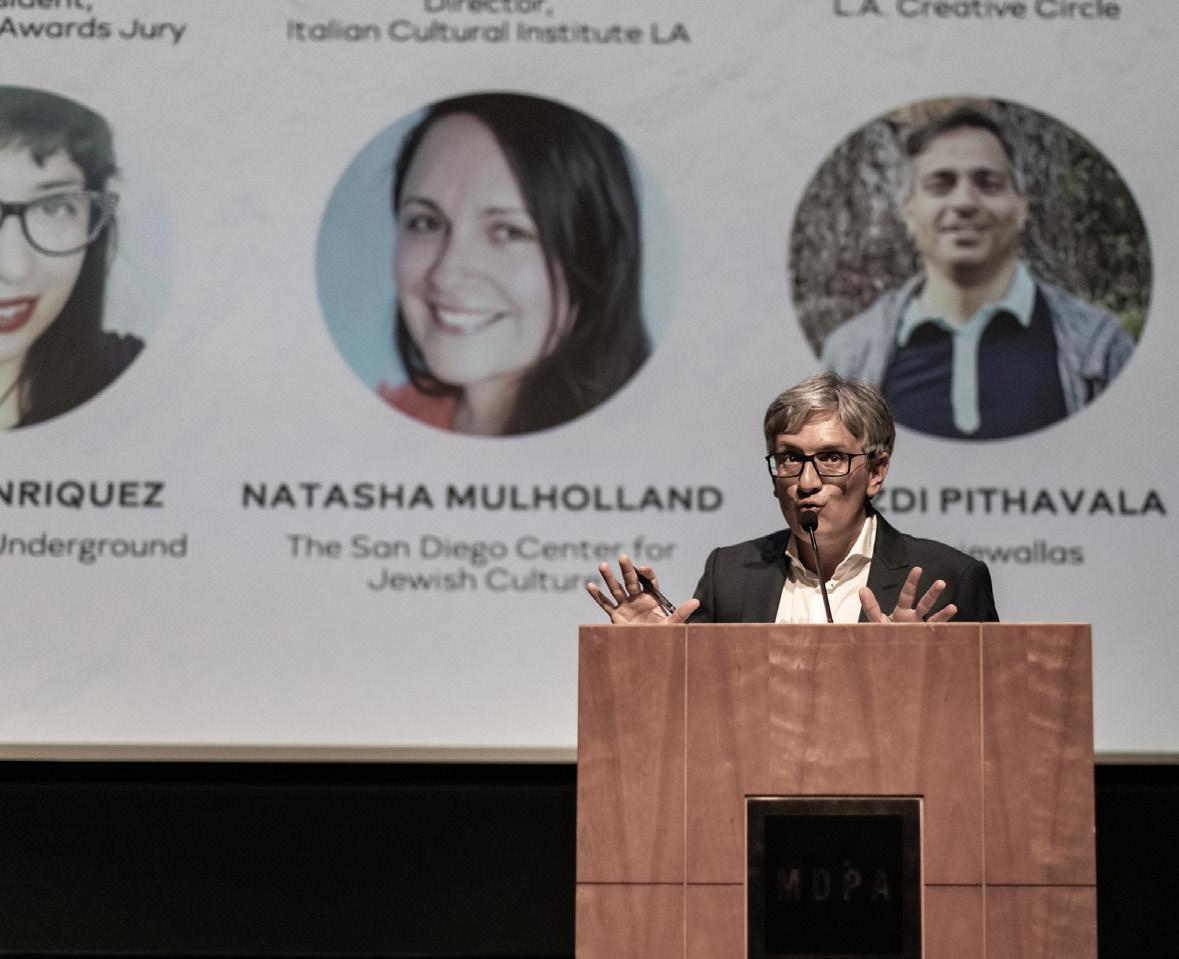
to start promoting the event.”
The planning of the event, which usually lasts around a week, can take the whole year. Getting the venue ready, choosing the films and connecting with the directors and actors can be a hassle, yet these festivals have been pulling it off for over a decade.
USD Professor Kristin Moran teaches in the Department of Communication and currently serves as the Associate Dean for Faculty in the College of Arts and Sciences. Besides this, Moran is also one of the reviewers for the films that are shared during the San Diego Latino Film Festival.
“I was a film reviewer,” Professor Moran said. “That means I watched films and rated them. Those ratings go to the programming director and team to decide what is shown at the festival. I think it is important to provide venues to movies that are outside the Hollywood mainstream. There are many stories being told through a variety of viewpoints, and festivals allow for that exposure.”
These three festivals are only some of the ones that San Diego offers throughout the year, and these professors are only a number of the ones that participate in events just like these. Every year, there’s around 10 festivals happening in the city, each giving a community a space to connect with one another and to enjoy their favorite hobbies. Many professors offer students discounts and free passes for these festivals, making this an exciting opportunity for students to get out of their dorm rooms and to explore local and creative events around San Diego.
ALEXANDRA ALCALA ASST. A&C EDITOR
The San Diego Asian Film Festival in action.
Photo courtesy of @SeanEloRiveraD9/X
USD Professor Antonio Iannotta speaking at the Italian Film Festival. Photo courtesy of San Diego Italian Film Festival
Attendees waiting for a screening at the Latino Film Festival. Photo courtesy of @thelonggamemovie/Instagram
Men’s basketball looks to put USD on the map
The team plans to make this season a statement year
LUKAS BLANKENSTEIN CONTRIBUTOR
Basketball season is just around the corner and the Toreros are ready to attack. The new roster of players are looking to put themselves on the map in the college basketball world, according to USD senior and center Steven Jamerson II.
“Our goal is to build on our improved record from last year,” Jamerson II said. “We hope to develop as a program and reach greater heights of achievements this season. Our ultimate goal is to put USD on the map.”
The roster was shaken up this season with a significant loss of starting players. Some returning players include Jamerson II, USD sophomore guard Dragos Lungu and USD senior guard Dominic Muncey.
In addition, the team’s top four scorers last season also all left this season, graduating or transferring to different locations. Among the returners, Jamerson II is set to have a big season. Out of the whole team, Jamerson II finished fifth in scoring with an average of 8.3 points per game and first in rebounds, averaging 8.1 rebounds per game. The team is said to be a very
young group, with 14 of the 21 players on the roster being underclassmen, nine of whom are first-years. According to USD sophomore forward David Simon, improvement from returning players will be key to success this year.
“There are several players who will make an impact this year, but the main message is that returning players will step into bigger roles, while the new transfers and recruits will fill the important roles left behind by those who transferred out last year,” Simon said.
Another important aspect with a young team is leadership. The current captains of the team are Muncey, Jamerson II, graduate student and guard Deven Dahlke as well as graduate student and guard Kody Clouet, who transferred this year from Division 2 Southeastern Oklahoma State. Clouet has already impressed many members of the team, including fellow captain Jamerson II.
“If we’re talking about someone that emerged, the most likely answer would be Kody Clouet,” Jamerson II claimed.
“He’s a transfer and is a phenomenal shooter. He’s been doing his part to help lead the team from day one, bringing a voice to practice every day.”
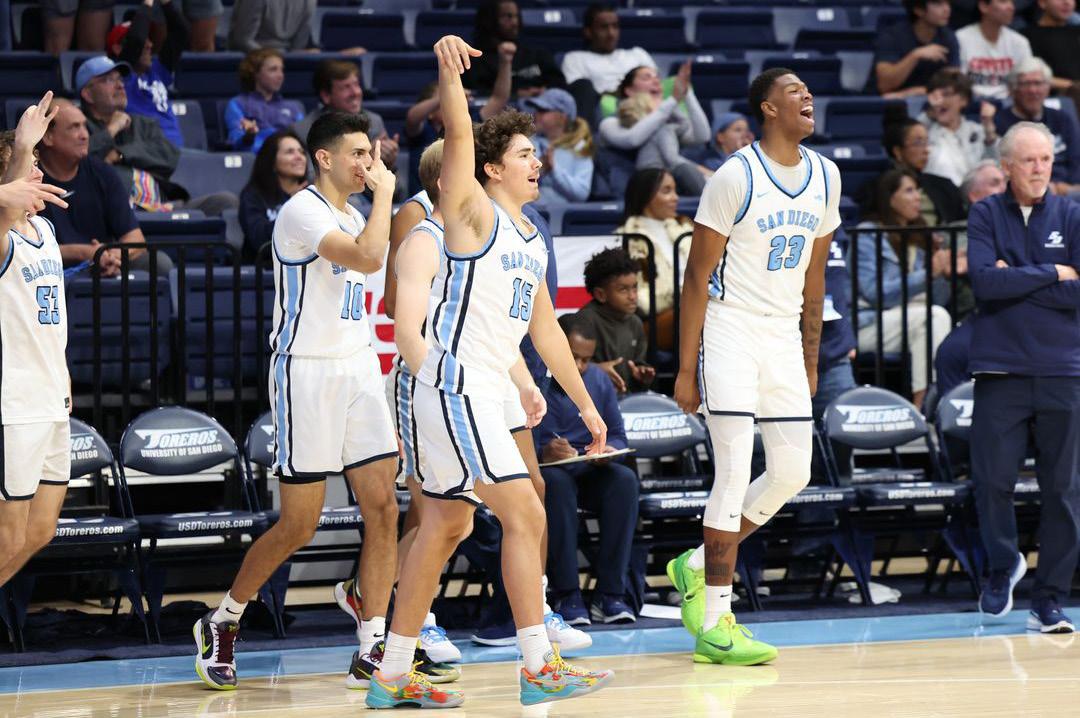
The players are not the only thing that’s changed, as coach Steve Lavin brought in a new assistant coach, Earl Watson, to help guide the team. Watson played for 13 seasons in the NBA and spent seven seasons as a coach in the NBA, most notably being the coach of the Phoenix Suns for parts of three seasons from 2016-2017. He
was most recently an assistant coach for the Toronto Raptors from 2021-2023. Watson’s relationship with Lavin goes back to Watson’s college days, where he played for Lavin at UCLA from 1997-2001.
Lavin had high praise for his new assistant coaching hire.
“He is a natural leader and exceptional teacher,”
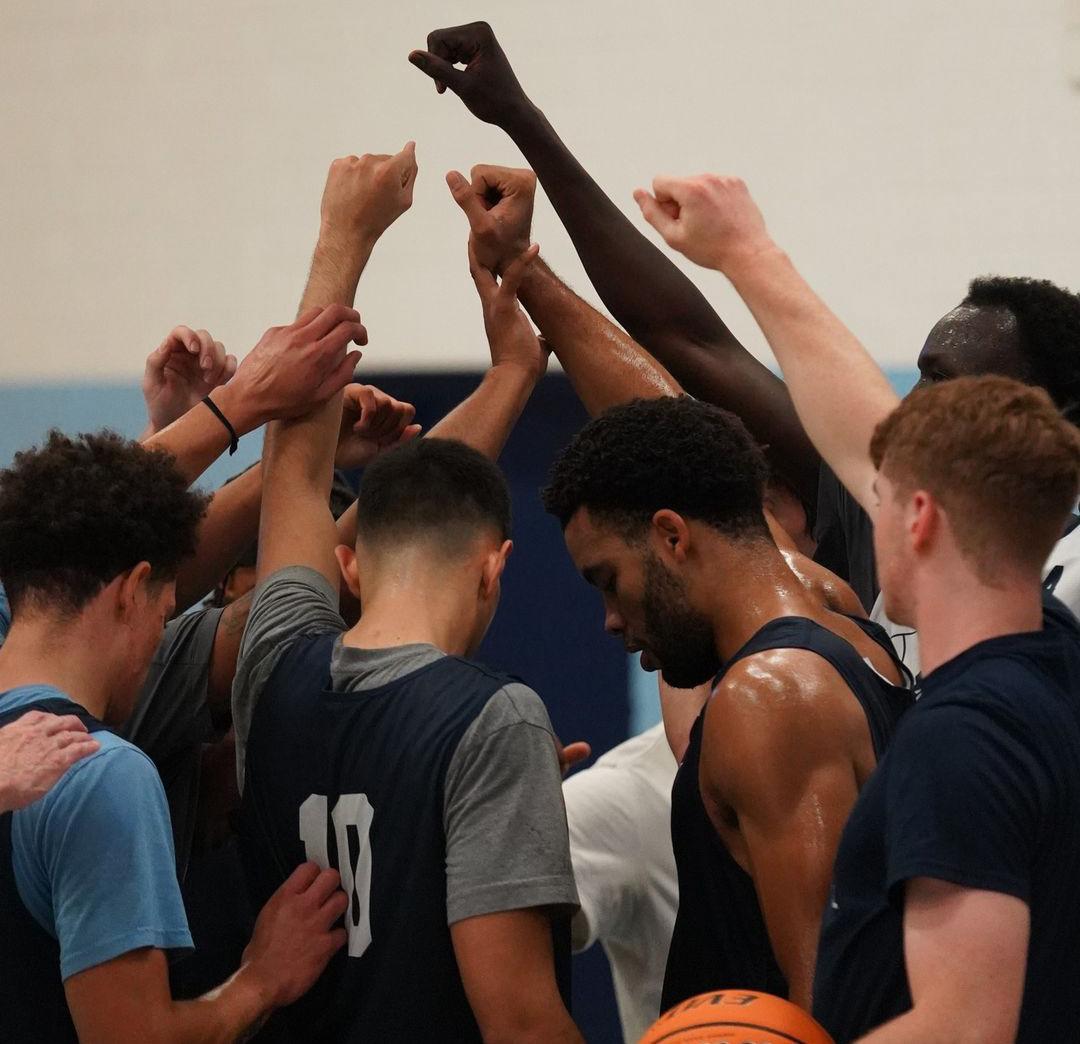
Lavin stated. “His wealth of experience as a player and coach at the highest levels make him an ideal fit to work with the young people in our program who aspire to develop all aspects of their game.”
Expectations from the media are low for the Toreros. According to the West Coast Conference’s preseason rankings, USD was voted as tied for eighth out of 11 teams in the conference. This is a step down from last season when Toreros finished fifth out of nine teams. The conference moved from nine teams to 11 after adding Washington State and Oregon State from the dissolved PAC-12 conference. However, captain Dahlke claims they are being underrated by the conference’s voters.
“We were picked eighth in the conference this year, but I think that we will make some noise and shock a lot of people,” Dahlke claimed. “We have a lot of new pieces that will contribute some big minutes and big plays throughout the season, so I’m very excited for people to see that. We’re the underdogs yet again, but I think we’re used to it at this point.”
The Torero’s started off their season successfully with a 73-61 win over Sonoma State at home on Friday, Nov. 1. The night saw Cloudet and USD sophomore guard Keyon Kensie Jr. both finish with 17 points to lead the team in scoring, while USD sophomore forward Santiago Trouet was instrumental with 10 rebounds to lead the team. They will hope to carry this momentum into their first regular season game on Wednesday, Nov. 6 against Rider University at the JCP.
New and returning players have reshaped the men’s basketball team this season.
Photo courtesy of @usdmbb/Instagram
USD men’s basketball team after a 73-61 win against Sonoma State.
Photo courtesy
Dodgers win World Series SPORTS
LA overcomes five run deficit to clinch 2024 World Series
PRIYA COOPER SPORTS EDITOR
The Los Angeles Dodgers did the impossible, coming back from a major deficit to turn around and win the world series. The Dodgers beat the New York Yankees 7-6 at Yankee Stadium on Wednesday, Oct. 30.
In this 7-6 victory, the Dodgers ushered in their celebration the hard way, becoming the first team in a World Series-clinching win to come back from being down five or more runs. They also became the first team in MLB postseason history to do so.
Following an exhilarating game and victory, Dodgers right fielder and shortstop, Mookie Betts, captured the spirit of the team in a post-game interview broadcasted on the MLB website.
“We’re obviously resilient, but there’s so much love in this clubhouse that won this game today,” Betts said. “That’s what it was. It was love. It was grit. It was just a beautiful thing. I’m just proud of us, and I’m just happy for us.”
In contrast, Yankees players are feeling the consequences of the loss. Yankees’ right fielder, Aaron Judge, helped give the Yankees an early lead, but a bad play in the field in the fifth inning also helped the Dodgers get back in the game. Judge
dropped an easy catch which ended up being disastrous for the Yankees and led to them losing their 5-0 lead entirely. Judge expressed his disappointment to the media which was reposted by Sports Illustrated.
“I think falling short in the World Series will stick with me until I die, probably,” Judge said.
Most of California is celebrating the World Series title, as the Yankees are notorious for being one of the most hated teams in the league. However, most USD students and San Diego Padres fans are still bitter about the Padres’ elimination from the playoffs at the Dodgers’ hands.
The loss took place only a few weeks ago and is still fresh in many fans minds. USD junior Quentin Bardin, who is from the San Diego area and is a diehard Padres fan, expressed his distaste for the Dodgers winning the World Series.
“If I had a million dollars I would win the World Series too,” Bardin said. “The Dodgers aren’t even that impressive. It’s all about the money rather than skill these days.”
The 2024 World Series certainly wasn’t without any drama. An incident involving two Yankees fans in game four continues to dominate most sports conversations, even after the season has concluded.
During game four of the
World Series at Yankee Stadium, Los Angeles led the best-of-seven series, 3-0. In the bottom of the first inning, Betts ran to the right field line and corner wall to catch a foul ball from Yankees second baseman Gleyber Torres. Betts jumped with his glove, reaching above the outfield’s wall, and as he appeared to catch the ball, a fan in the front row grabbed onto his glove. The fan then attempted to pry open Bett’s glove with both hands and managed to knock the ball back onto the field to disrupt the play. Another fan, seated next to the original Yankees fan, grabbed onto Betts’ other hand to keep him from fighting back. The umpire ended up ruling fan interference, and the interaction did a fair job of summing up the intensity of the rivalry throughout the series, as well as fans emotions around the games.
Even USD students from Los Angeles have varied loyalties. USD junior Sean Hudson, though being from LA, grew up a Yankees fan and had some input on the last few games as things got more intense.
“The two Yankees players that grabbed the ball out [of] Mookie Betts hands were valid,” Hudson said. “It was definitely an interference of play but as a Yankees fan it felt okay.”
On the other hand USD junior and Dodgers fan Isabella Sabbarese was more than
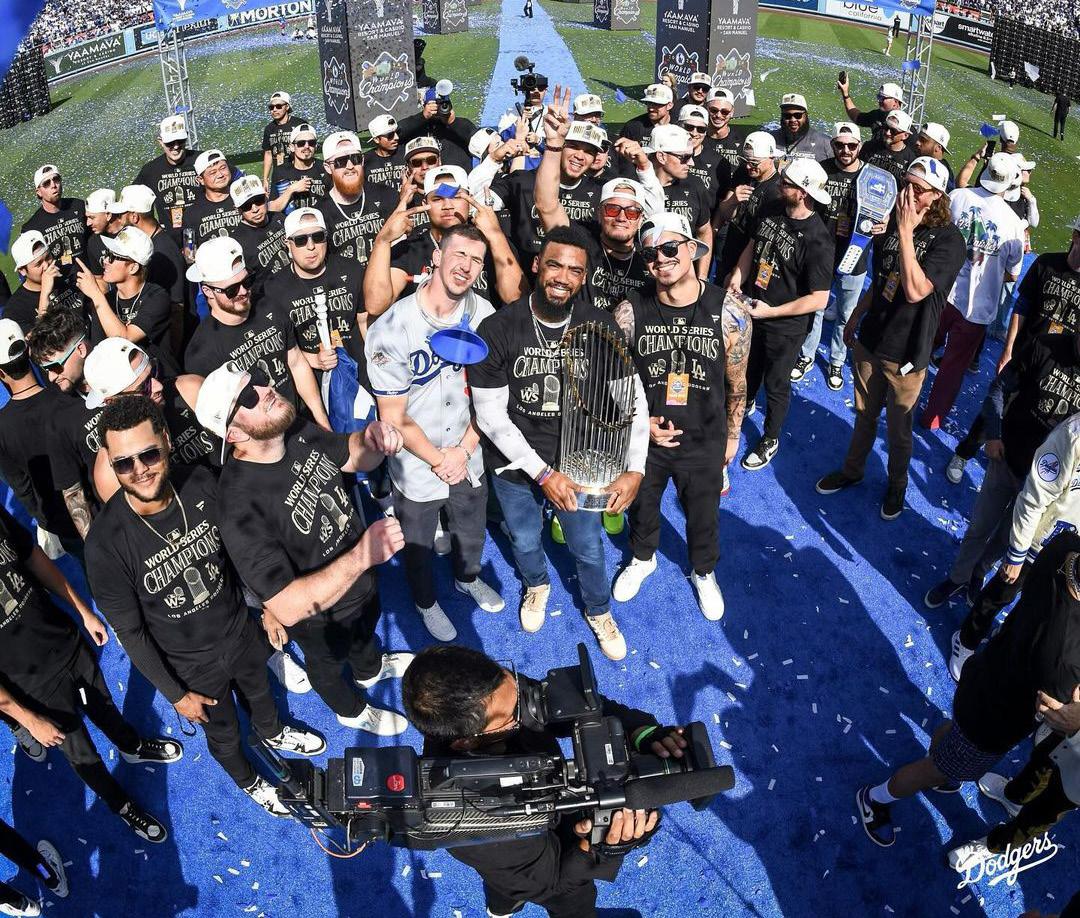

pleased with the outcome of this year’s World Series.
“I was scared to wear my jersey on campus after the win, but I have supported the Dodgers my whole life and couldn’t be more happy with the result,” Sabbarese said.
This Dodgers’ victory is a historic milestone for California
and the City of Los Angeles. It will be celebrated by their fans for years to come despite the controversy. Padres and Yankees fans alike might feel a bit differently about the triumph that has crowned the 2024 MLB season. The MLB regular season will start up again in late March or early April.

